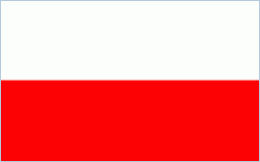
Further volumes of this series
Polskie Dokumenty Dyplomatyczne 1981 lipiec–grudzień
Editor: Piotr Długołęcki
Warsaw 2022
ISBN: 978-83-67487-08-5
Pages: LXXXVII + 1092
Polish Diplomatic Documents 1981 July-December is the 29th volume published as part of the PDD series. It contains 545 documents that illustrate Polish foreign policy in the second half of 1981.
The foreign policy of the People’s Republic of Poland during the documented period was dominated by the consequences of internal events related to the lively activity of the Solidarity Trade Union. Successive crises, threats of strikes, hectic reactions from the authorities and a tense internal situation meant that the threat of Soviet intervention was, according to many observers, becoming more and more real. Much interest was also aroused by the change in the position of First Secretary of the Central Committee of the PZPR – the replacement of Stanisław Kania by Wojciech Jaruzelski. The most significant event of the second half of 1981, however, was the decision of the PRL authorities to impose martial law, which had an enormous impact on Polish foreign policy and on East-West relations as a whole.
The tense political situation was compounded by problems related to the growing economic crisis and insurmountable difficulties regarding the repayment of foreign debt. The loss of the monopoly of the party and government in the sphere of international relations – already noticeable in the first half of the year – was also deepening. The expanding foreign activity of the Solidarity Trade Union was practically beyond the control of the authorities, and events such as the First National Congress of NSZZ delegates and the sending of a message to the working people of Eastern Europe or a letter to the Polish diaspora of the whole world during provoked lively reactions in both socialist and capitalist countries. The tense situation also resulted in the activation of Polish émigré and opposition circles, further increasing emigration tendencies in Polish society.
The foreign policy pursued in these conditions was indeed multifaceted – in relations with the USSR and the socialist countries, the People’s Republic of Poland’s authorities asserted that the situation was under control and that there was no fear of the crisis spreading to other Eastern European countries. In relations with Western countries, on the other hand, it was emphasised that the crisis was an internal Polish affair, efforts were made to counteract any attempts to support the opposition and Solidarity, and to act against efforts to internationalise the Polish cause by bringing it to the deliberations of the CSCE or the UN.
A specific element of Polish foreign policy was relations with the Holy See, which the authorities in Warsaw sought to see as an ally in talks with the Episcopate. There was also a certain revival in Polish-Jewish relations and in contacts with Israel. There was also an increase in the importance of historical issues, concerning not only Polish-Jewish relations, but also the Katyn massacre or the so-called Prussian wave in the GDR and the USSR. Historical issues were also raised by the Solidarity Trade Union, recalling events in relations with the USSR that were inconvenient for the authorities.
The documents presented in the volume show two completely different ways of conducting foreign policy with the caesura falling on 13 December. The imposition of martial law and the subsequent massacre of miners in the Wujek mine radically changed the hitherto bilateral and multilateral contacts of the People’s Republic of Poland. The freezing of relations with Western countries and the imposition of sanctions by the USA, together with the practical suspension of the movement of people, completely transformed contacts with the West. The Polish authorities concentrated on defending and justifying the decision to impose martial law and on trying to break the isolation. In relation to the USSR and the socialist countries, measures were simultaneously taken to obtain economic and food aid.
The vast majority of the documents, derived mainly from the Archives of the Ministry of Foreign Affairs and the Central Archives of Modern Records, have not been previously published. The volume includes an index of individual names and an extended subject index, as well as the annexes containing a list of international agreements concluded by the People’s Republic of Poland and a diagram reflecting the structure of the Ministry of Foreign
